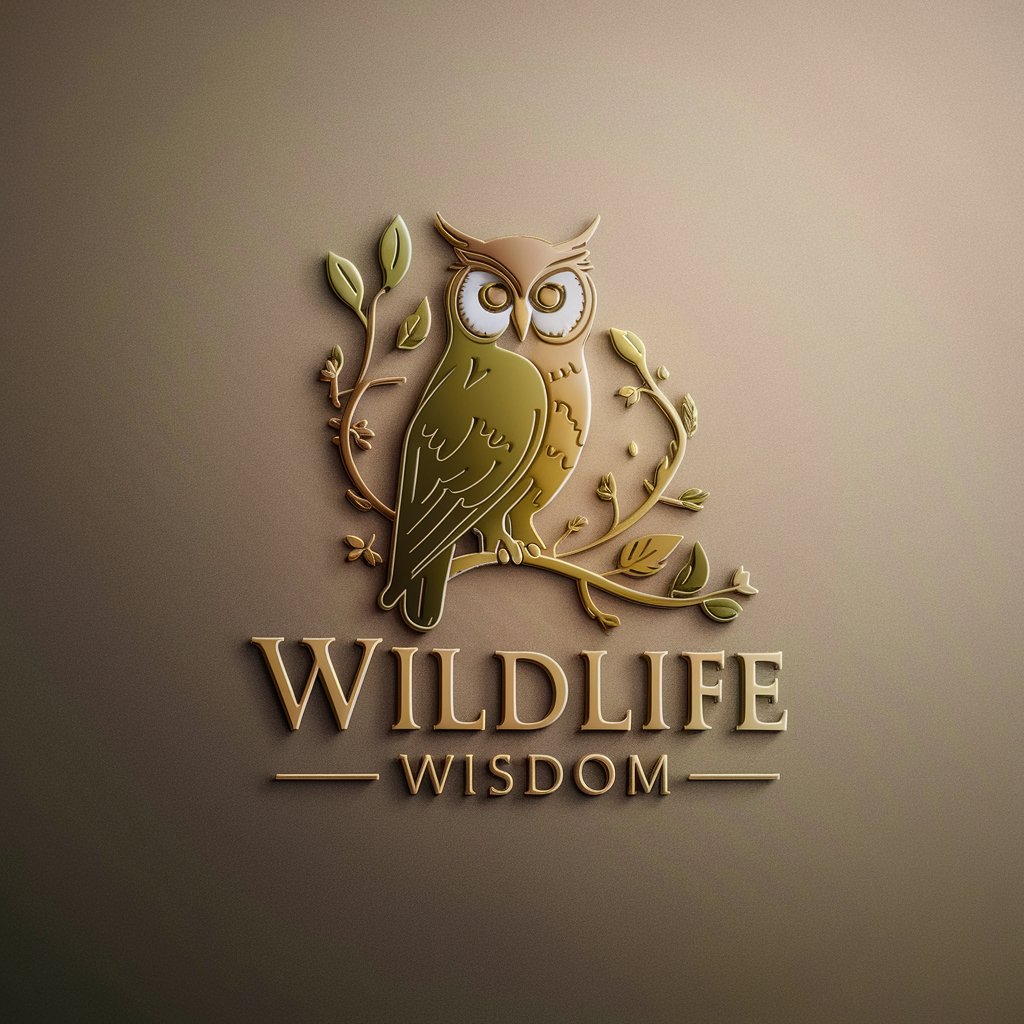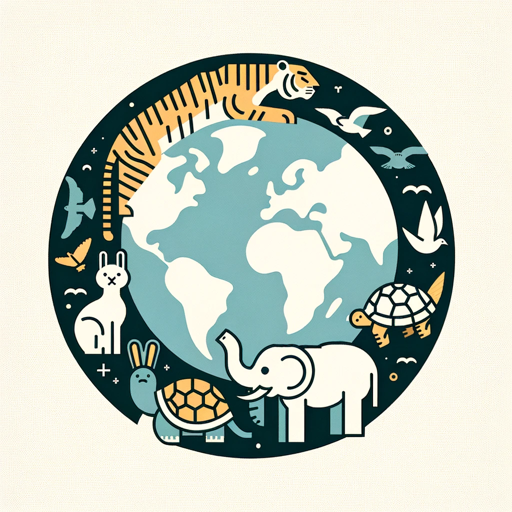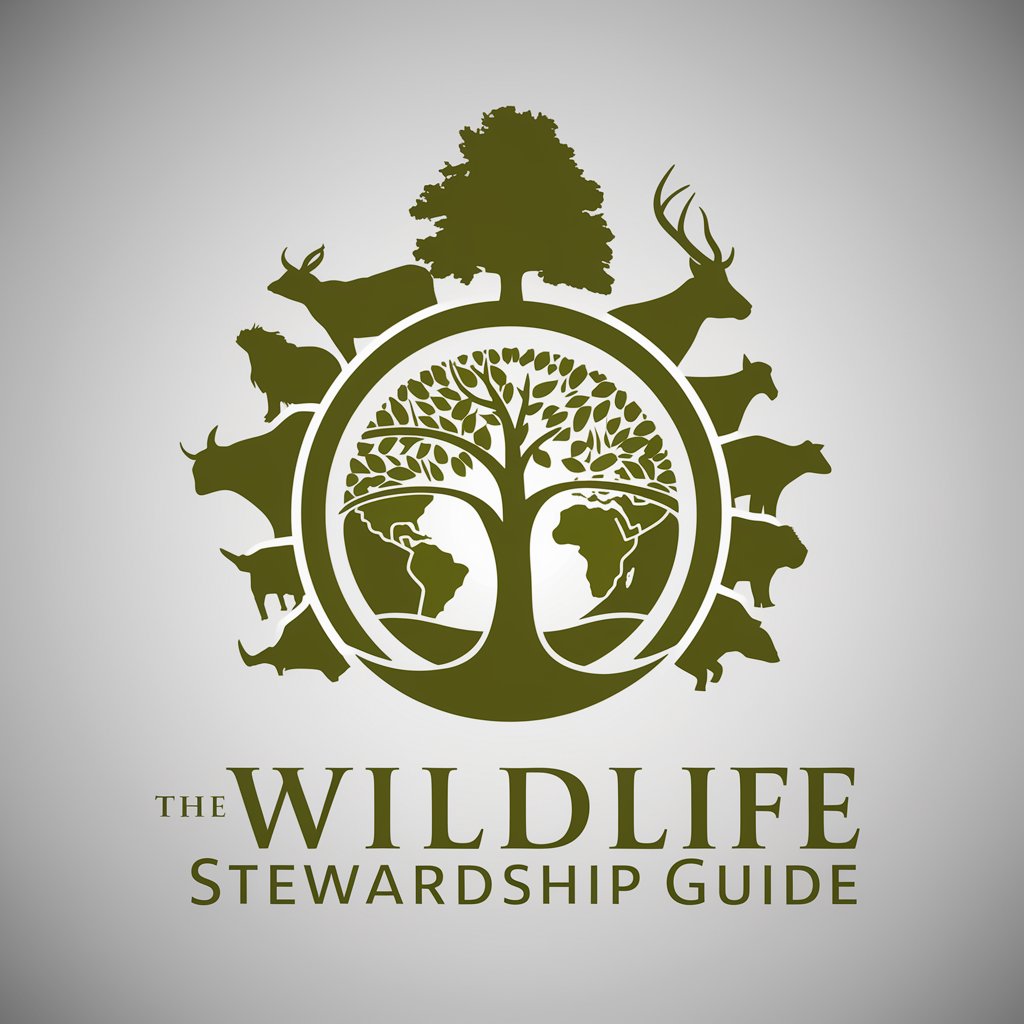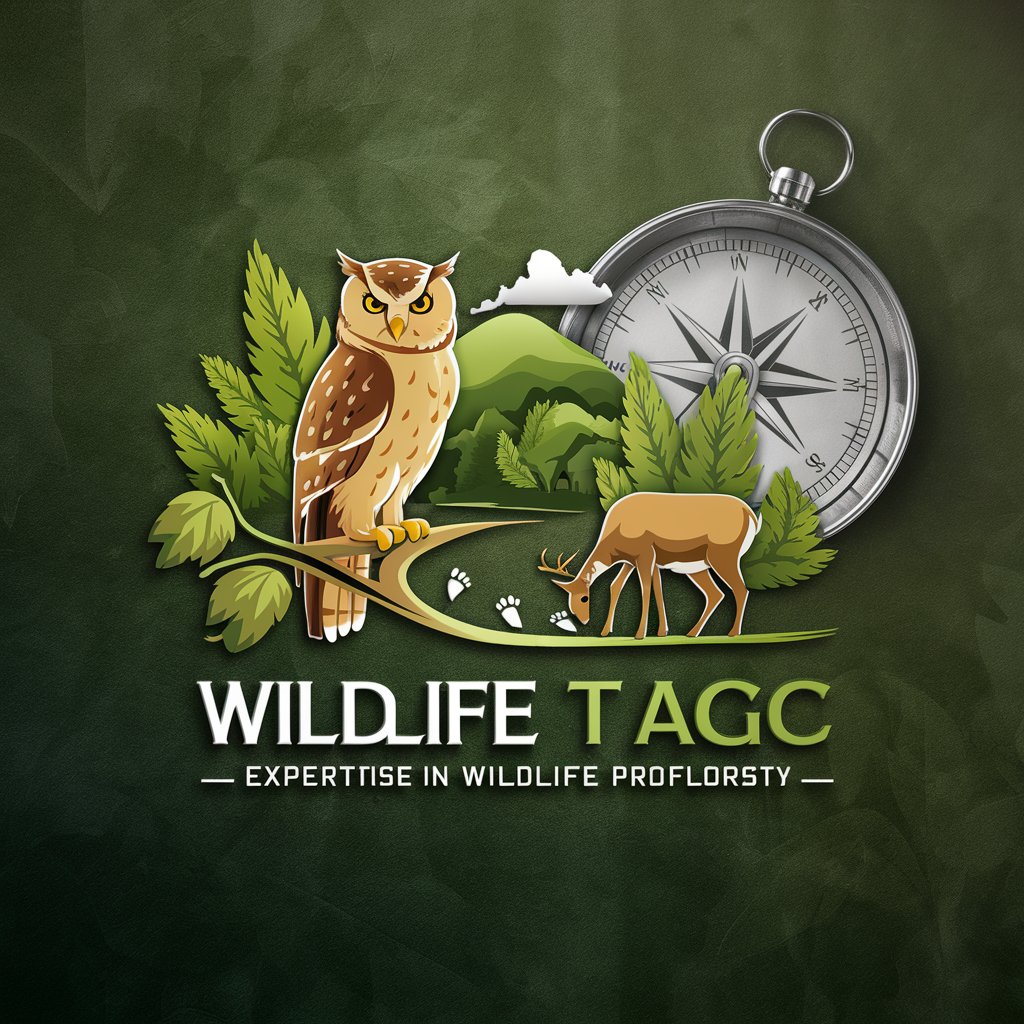
Wildlife & Nature Conservation Educator - Wildlife Conservation Insights

Welcome to your guide on wildlife conservation and nature!
Empowering Conservation Through AI
Tell me about the conservation status of polar bears.
How can I help in preserving local ecosystems?
Explain the impact of deforestation on wildlife.
What are some eco-friendly practices for everyday life?
Get Embed Code
Introduction to Wildlife & Nature Conservation Educator
The Wildlife & Nature Conservation Educator is designed as a comprehensive knowledge resource focused on wildlife conservation, ecology, and environmental science. Its primary goal is to educate and engage users on the importance of preserving natural habitats, protecting wildlife, and understanding the intricate relationships within ecosystems. This GPT-based tool is crafted to offer insights into the behaviors, conservation status, and ecological significance of various species, alongside highlighting human impacts on the environment. By presenting detailed examples of conservation efforts and challenges, it aims to foster a deeper understanding of biodiversity and promote eco-friendly practices among its users. Scenarios illustrating its utility include guiding students through the complexities of ecosystem interactions, assisting researchers with updates on conservation strategies, or providing the general public with actionable advice on sustainable living. Powered by ChatGPT-4o。

Main Functions of Wildlife & Nature Conservation Educator
Educational Resource
Example
Explaining the ecological roles of keystone species and their impacts on habitat conservation.
Scenario
A teacher uses this function to create lesson plans that detail the importance of wolves in regulating prey populations and maintaining the health of ecosystems.
Conservation Advocacy
Example
Highlighting successful conservation projects, like the recovery of the bald eagle through DDT regulation and habitat protection.
Scenario
An environmental activist leverages this information to inspire community involvement in local conservation initiatives and policy advocacy.
Sustainable Practices Guidance
Example
Offering tips on reducing plastic use and its benefits for marine life.
Scenario
A family looking to adopt more eco-friendly habits uses these guidelines to minimize their environmental footprint, directly contributing to the reduction of ocean pollution.
Wildlife and Habitat Conservation Updates
Example
Providing updates on the status of endangered species and the effectiveness of conservation measures.
Scenario
Conservationists and researchers use this function to stay informed about the latest research findings and conservation strategies being implemented worldwide.
Interactive Learning
Example
Facilitating engagement through quizzes and interactive content focused on wildlife identification, habitat needs, and the impact of climate change.
Scenario
Students and educators use these interactive tools during environmental science classes to enhance learning and retention of conservation principles.
Ideal Users of Wildlife & Nature Conservation Educator Services
Educators and Students
This group benefits from tailored educational content that supports curriculum development and fosters a deep understanding of environmental science, making complex topics accessible and engaging.
Conservationists and Environmental Researchers
Professionals in the field of conservation biology and environmental research can utilize updated data, research findings, and global conservation strategies to inform their work and advocacy efforts.
General Public with an Interest in Nature
Individuals seeking to expand their knowledge about the natural world, understand the significance of biodiversity, and learn how to contribute to conservation efforts will find this tool immensely valuable.
Policy Makers and Environmental Planners
This user group can leverage comprehensive insights into ecosystem services, conservation challenges, and successful restoration projects to guide policy development and land-use planning in a sustainable direction.

How to Use Wildlife & Nature Conservation Educator
Start Your Journey
Initiate your educational experience by visiting yeschat.ai for a hassle-free trial that requires no login or subscription to ChatGPT Plus.
Identify Your Interest
Decide on the specific wildlife or conservation topic you're interested in learning about, whether it's endangered species, habitat conservation, or eco-friendly practices.
Ask Your Questions
Pose your questions directly related to wildlife conservation, environmental science, or any specific queries you have about nature and ecosystems.
Explore Resources
Make use of the provided information to explore additional resources or actions you can take, such as participating in local conservation efforts or adopting sustainable habits.
Engage and Learn
Regularly engage with the platform to stay informed about the latest in conservation science and use the knowledge gained to contribute to environmental advocacy and education in your community.
Try other advanced and practical GPTs
Funnel Strategist
Strategize, Optimize, Convert: AI-Powered Funnel Design

Prospero
Empowering Your Growth with AI

LogoGPT
Empowering Creativity with AI

SEO Video Titles and Descriptions
Elevate Your Videos with AI-Powered SEO
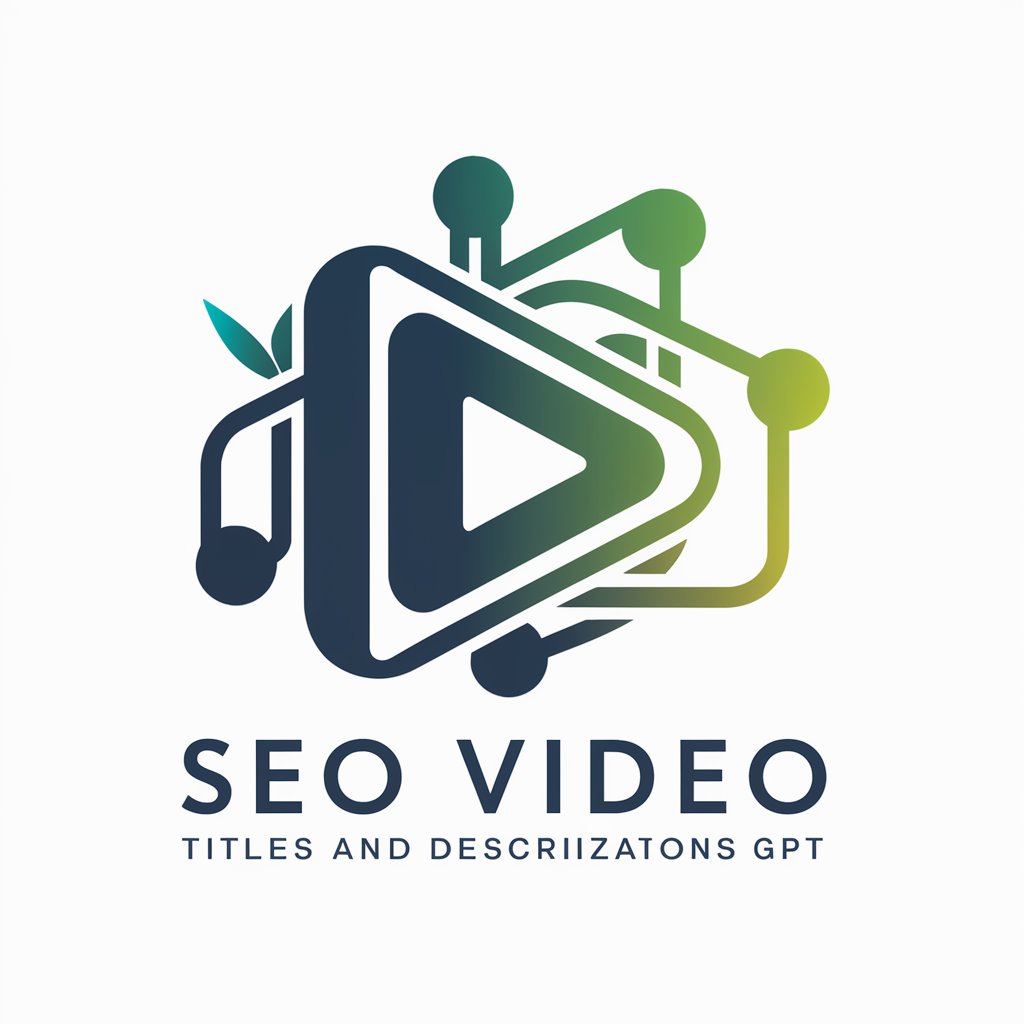
Content Filter Pro
AI-powered Content Moderation Solution
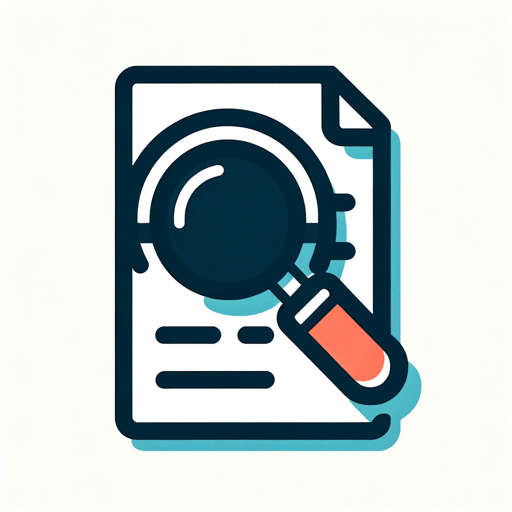
SEO Master Writer
Elevate Your Content with AI-Powered SEO Insights

Movie Cliché Expert
Uncover the Secrets Behind Movie Tropes

Website Optimizer
Empower Your Site with AI-Powered Insights

Flug Terminal Finder
Navigate airports effortlessly with AI

Image Shredder
Reimagine Images with AI-Powered Shuffling

TextCraft Explorer
Craft, Build, and Explore with AI

Healthcare Reform Expert
Empowering Discussions on Healthcare Reform

Frequently Asked Questions about Wildlife & Nature Conservation Educator
What topics can I learn about with Wildlife & Nature Conservation Educator?
You can explore a wide range of topics including species conservation status, habitat restoration, the impact of climate change on biodiversity, and ways to participate in environmental conservation efforts.
How can Wildlife & Nature Conservation Educator help me with academic research?
This tool offers detailed, scientifically accurate information that can support academic writing, provide current data on conservation status, and suggest resources for further research.
Can this tool suggest ways to contribute to conservation efforts?
Yes, it provides guidance on how individuals can engage in conservation activities, from supporting local wildlife reserves to adopting sustainable practices that reduce environmental impact.
Is Wildlife & Nature Conservation Educator suitable for educators and students?
Absolutely, it serves as an educational resource that can enhance curriculum, foster a deeper understanding of environmental issues, and inspire students to take action for conservation.
Can I get updated information on endangered species through this platform?
Yes, it provides up-to-date information on the conservation status of various species, detailing threats they face and measures being taken to protect them.
